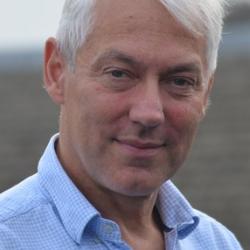Biography
I graduated with a degree in Biology and obtained my PhD at the University of Konstanz, Germany, having worked in the laboratory of Rolf Knippers on the assembly of nucleosomes during DNA replication. In 1994, I moved to Cambridge as a postdoc with an EMBO fellowship, working with Ron Laskey at the Wellcome/CRC Institute (now the Wellcome Trust/Cancer Research UK Gurdon Institute) on the regulation of human chromosomal DNA replication. I began to establish my own research group there from 1997 onwards as a Royal Society University Research Fellow. In 2000, I was appointed as a University Lecturer in Cell Biology and moved with my research group to the Department of Zoology. I am now working as an Associate Professor in the Department and I am active in Research and Teaching at undergraduate and postgraduate level.
Research
I am interested in the control of chromosomal DNA replication in eukaryotic cells. Current research in my group focuses on the initiation step of DNA replication in human cells. In particular, we are investigating the specification, the localisation, and the activation of DNA replication origins in the human genome. We also look at the function of small non-coding RNAs during the initiation of DNA replication at these sites.
Before a cell can divide, it needs to replicate its chromosomal DNA. A key regulation step for the cell division cycle is the initiation of chromosomal DNA replication at the G1-to-S phase transition. We have established a cell-free system from human cells that reconstitutes this process in a test tube. We have used this experimental system to purify and to characterise essential initiation factors. With this approach, we have identified the small non-coding Y RNAs as essential initiation factors in vertebrate cells. A key objective of our ongoing work is the elucidation of molecular mechanisms by which these small non-coding Y RNAs exert their function during the initiation of DNA replication in vertebrate cells.
Our current focus, however, is directed at the genome itself, to the specification and activation of DNA replication origins, those sites on the genome where DNA replication initiates. In a collaborative effort, we have developed a series of related methods to map where active DNA replication origins are located on the human genome. This 'initiation site sequencing' approach (ini-seq) is built on the cell-free initiation system we have developed earlier, and has led to the identification of tens of thousands of distinct origin sites on the human genome.
Most recently, we have discovered that DNA replication origin sites in human cells are specified epigenetically by the oxidation of 5-methyl-deoxycytidines in G1 phase, before they become activated as replication origins in S phase. This dynamic epigenetic specification in human cells is different from the canonic origin specification by genetic DNA sequence elements as found in yeast and bacteria. Our current research is therefore focussed on characterising further this epigenetic origin site specification, its dynamics during the cell cycle, its biogenesis, and its functional relevance for origin activation.
Publications
Krude, T., Bi, J., Doran, R., Jones, R.A., Smith J.C. (2025). Human DNA replication initiation sites are specified epigenetically by oxidation of 5-methyl-deoxycytidine. Nucleic Acids Res 53, gkaf362, 1-19.
Hyrien, O., Guilbaud, G. and Krude, T. (2025). The double life of mammalian DNA replication origins. Genes Dev 39, 304-324.
Guilbaud, G., Murat, P., Wilkes, H.S., Koch Lerner, L., Sale, J.E., and Krude, T. (2022). Determination of human DNA replication origin position and efficiency reveals principles of initiation zone organisation. Nucleic Acids Res 50, 10230-47.
Christov, C.P., Dingwell, K.S., Skehel, M., Wilkes, H.S., Sale, J.E., Smith, J.C., and Krude, T. (2018). A NuRD complex from Xenopus laevis eggs is essential for DNA replication during early embryogenesis. Cell Rep 22, 2265-2278.
Langley A.R., Gräf S., Smith J.C. and Krude T. (2016). Genome-wide identification and characterisation of human DNA replication origins by initiation site sequencing (ini-seq). Nucleic Acids Res 44, 10230-47.
Collart, C., Christov, C.P., Smith, J.C., and Krude, T. (2011). The mid-blastula transition defines the onset of Y RNA-dependent DNA replication in Xenopus laevis. Mol Cell Biol 31, 3857-3870.
Christov, C. P., Gardiner, T. J., Szüts, D., and Krude, T. (2006). Functional requirement of non-coding Y RNAs for human chromosomal DNA replication. Mol Cell Biol 26, 6993-7004.
Krude, T., Jackman, M., Pines, J., and Laskey, R.A. (1997). Cyclin/Cdk-dependent initiation of DNA replication in a human cell-free system. Cell 88, 109-119.
Teaching and Supervisions
I teach both at undergraduate and postgraduate level. At undergraduate level, I give lectures and practical classes for second and third year students and supervise third year research projects. At postgraduate level, I supervise MPhil and PhD students on subjects tied to our research interests...

